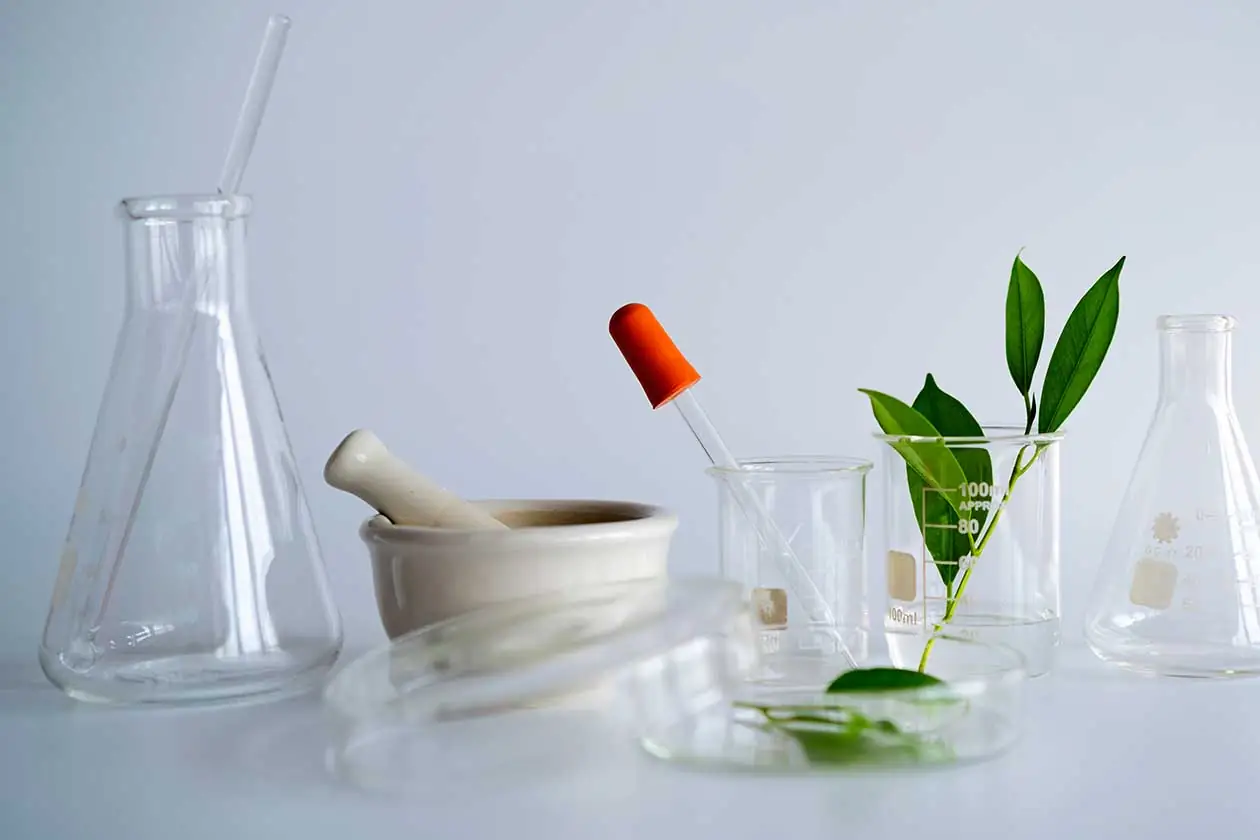The evolution of cosmetic products extends from antiquity, through various civilizations, to the present day. In each historical period, cosmetic products have reflected changes in culture, society, and beauty standards, but it was in the 20th century that science and technology were significantly incorporated into cosmetic processes, driving a true transformation and the beginning of the cosmetics industry as we know it today.
This period marked a before and after in the development, efficacy, and safety of cosmetic products: the synthesis of new compounds and the use of technologies to enhance the formulation and application of cosmetics were some of the advances that allowed for the offering of innovative products tailored to the specific needs of consumers.
The growth of the industry led to increased regulation to ensure the safety and quality of the components used, as well as proper labeling for cosmetics. In line with new trends and social sensitivities, other more recent additions include more inclusive product ranges that consider different skin tones and hair types, as well as organic, sustainable, vegan, or cruelty-free preferences, among others.
The figures of cosmetic innovation
The incorporation of innovation in the cosmetics industry is essential to understand how this industry adapts and evolves in response to market expectations. The perfume and cosmetics sector in Spain experienced a growth of 11.3% in 2022, compared to the previous year, reaching a business volume of 9.250 billion euros. This growth is mainly attributed to product innovation and expansion into international markets, which has consolidated Spain among the top 10 global exporters of beauty products and in second place for perfume exports. The sector’s exports reached 6.515 billion euros in 2022.
Adaptation to trends: key for the cosmetics industry
Today’s consumers are more informed and aware than ever of their preferences in cosmetic products. This includes a growing demand for products that are sustainable, organic, cruelty-free, and customized to meet their specific needs. Innovation allows brands to develop products that not only meet these expectations but also outperform the competition in a highly competitive market.
Crucial technology in cosmetic product innovation
From the research and development of new ingredients to the implementation of advanced manufacturing technologies, technological innovation enables the creation of more effective (biomimetic peptides, advanced antioxidants, probiotics), safe, and consumer-attractive products. For example, biotechnology and microencapsulation have enabled the development of more potent and specific cosmetic ingredients, while artificial intelligence (AI) and big data analytics help customize products on a previously unimaginable scale.
Within the framework of the Marea II project, AINIA is studying natural origin materials for use in the cosmetics sector (spanish) that allow for more effective encapsulation of active principles. With the aim of achieving more effective targeted delivery systems to skin cells, peptides with penetrating capabilities have been synthesized through genetic engineering tools.
Another example is the Healthytooth project, which explores the therapeutic potential of various enzybiotics against the pathogens that cause cavities. Specifically, the use of bioactive ingredients derived from bacteriophage viruses is being studied to develop a strategy that minimizes the effects of pathogens causing various oral pathologies such as cavities.
Among the advances brought about by the incorporation of technology into the cosmetics industry are the possibility of creating personalized products based on genetic analysis or skin assessment using artificial intelligence (AI). There are also improvements in product safety through alternative methods to animal testing and the development of more sustainable products, from the use of naturally sourced ingredients to biodegradable or recyclable (spanish) packaging.
In this context, the Frutalga project, led by AINIA, with the participation of SITRA, AVA-ASAJA, IDiBE, and Prospera Biotech, investigates the extraction of high-value bioproducts for the cosmetics industry from the use of microalgal biomasses and fruit from production losses in agricultural activities.
Sustainability of packaging in cosmetic products
Innovation in packaging and its application to cosmetic products also plays a crucial role in enhancing the user experience. Designs of biodegradable or sustainable packaging can improve usability and extend the product’s shelf life while reducing environmental impact.
In this context, researchers at AINIA have developed a cosmetic packaging made from a bioplastic derived from organic waste. The integration of bioprocesses allows for the revaluation of waste, while reducing the manufacturing costs of the biopolymer. Several packaging prototypes for cosmetic products have been made with this biopolymer and have already been tested by cosmetic companies.
Sustainability has become a priority for both consumers and producers. These innovations not only respond to consumer demand for more eco-friendly products but also contribute to corporate responsibility towards the environment.
Safety and Regulatory Compliance in Cosmetics
Innovation demands updating cosmetic regulations to ensure consumer safety with regulations that are constantly updated worldwide. Furthermore, the European Union is promoting sustainable development in this industry, which includes improving environmental performance regarding packaging and the efficient use of water.
It also requires continuous investment in research and evaluation tests, which endorse that new products are not only innovative and effective but also safe for use.
Ultimately, innovation in the cosmetics industry is essential to meet the diverse and changing needs of consumers, who seek products that are safe, effective, personalised, and sustainable. By investing in research and development, adopting new technologies, and paying attention to market trends, brands can develop products that not only meet consumer expectations but also positively contribute to the environment and society.




